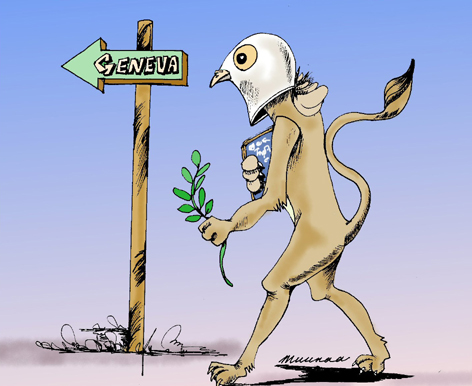Monks destroy Muslim shrine as police stand idle
 |
|
Photograph www.sinhalaravaya.com |
Over 100 Sinhala Buddhist monks demolished a Muslim shrine in Anuradhapura on Saturday according to reports by the BBC.
Monks, dressed in their saffron robes, encouraged other monks and Sinhala crowds to tear down the shrine.
One photograph of the incident shows a monk burning the flag of Islam by the ruins of the shrine.
The destruction was reportedly masterminded by a monk, named Amatha Dhamma Thero, who justified the attack by stating the local Muslims were attempting to convert the shrine into a mosque.
According to Thero, despite local government officials attempting to pacify the Sinhala crowds by stating the shrine would be closed within three days, angry crowds proceeded to raze the shrine, shouting "we cannot wait".
Thero explained to reporters that the shrine was located on land 'given' to the Sinhalese Buddhists over 2000 years ago - an ideology central to the Sinhala Buddhist text, the Mahavamsa.
According to locals, senior members of the Sri Lankan police force witnessed the entire incident, but did nothing to intervene.
 |
| All photographs www.sinhalaravaya.com |
Photographs published on a Sri Lankan news portal show Sri Lankan policemen idly watching the monks' wanton destruction. No arrests or charges have been made.
The police however deny the incident ever took place.
Police spokesperson, Prishantha Jayakody, told BBC Sinhala, "This is a fabricated story. No media in Sri Lanka has reported this and we don't have any police report. If this happened there would have been a complaint. We have not received any complaint."
Sri Lanka's Buddhist monks, part of the very fabric of Sinhala polity, are notorious for their extremist Sinhala nationalism and their deeply concerning propensity towards violence.
Buddhist monks and violence
Sri Lanka's monks have consistently been leading proponents of a return to armed conflict during times of ceasefire.
See 'Sri Lanka's top monk shuns non-violence' by Voice of America, dated 9th April 2008.
See 'Sinhala nationalists want truce torn up' - Buddhist monks protest in demanding the abrogation of the 2002 ceasefire, in February 2007.
Targeting of non-Buddhist places of worship
The sacred buildings of other religions have frequently been targeted by Sinhala-Buddhism extremism.
The JHU - a political party known for its ultra-Sinhala nationalist stance - was formed by Buddhist Monks.
In 2009, the JHU justifed an attack on a Christian healing centre, 'Centre for Hope' in Koswatte, arguing that religious conversions to Christianity left Sinhala Buddhists with no other option.
Then JHU spokesperson, Nishantha Sri Warnasinghe stated, "we as the JHU who pledged to build a ‘Buddhist nation’ have a right to raise a voice against the church".
 |
| All photographs www.sinhalaravaya.com |
 |
 |
 |

